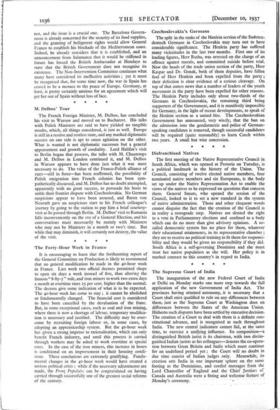Disfranchised Natives The first meeting of the Native Representative Council
in South Africa, which was opened at Pretoria on Tuesday, is a political landmark in the history of the Union. The Council, consisting of twelve elected native members, four nominated native members and six Europeans, is the body set up under the Native Representation Act to enable the views of the natives to be expressed on questions that concern them. General Smuts, who opened the session of the Council, looked to it to set a new standard in the system of native administration. Those and other eloquent words cannot disguise the fact that the creation of the Council is in reality a retrograde step. Natives are -denied the right to a vote in Parliamentary elections and confined to a body which can do no more than give advisory opinions. A so- called democratic system has no place for them, whatever their educational attainments, in its representative chamber ; they are to receive no political training to fit them for responsi- bility and they would be given no responsibility if they did. South Africa is a self-governing Dominion and she must treat her native population as she will. Her policy is in marked contrast to this country's in regard to India.






















































 Previous page
Previous page